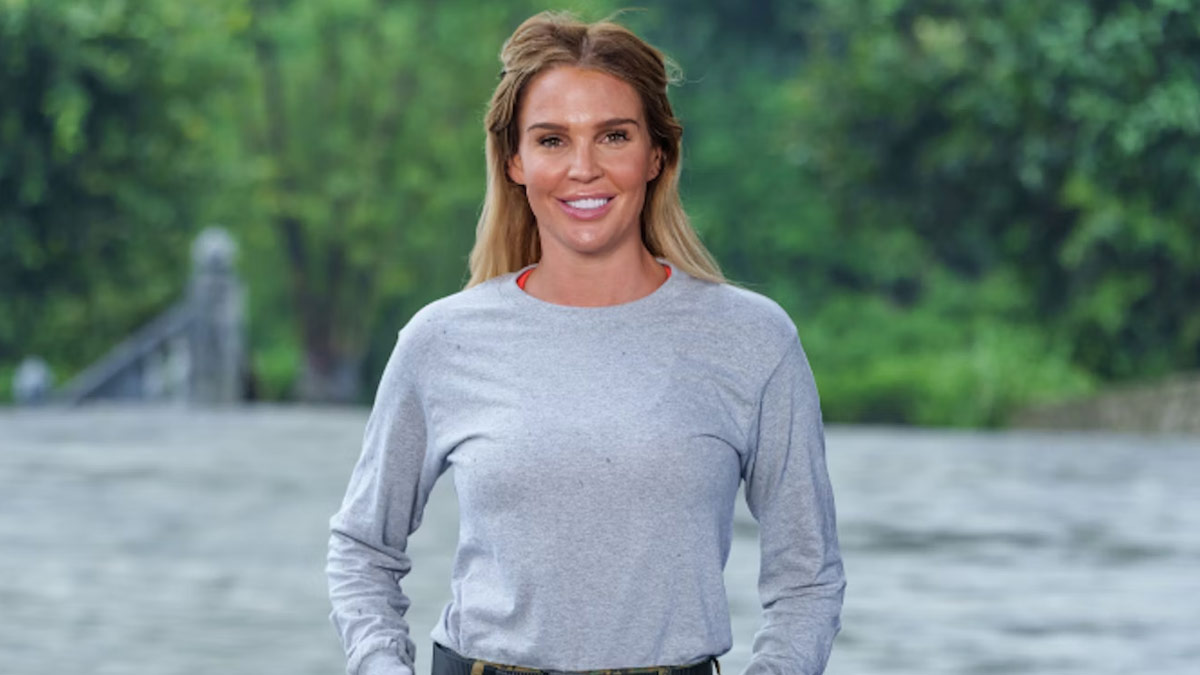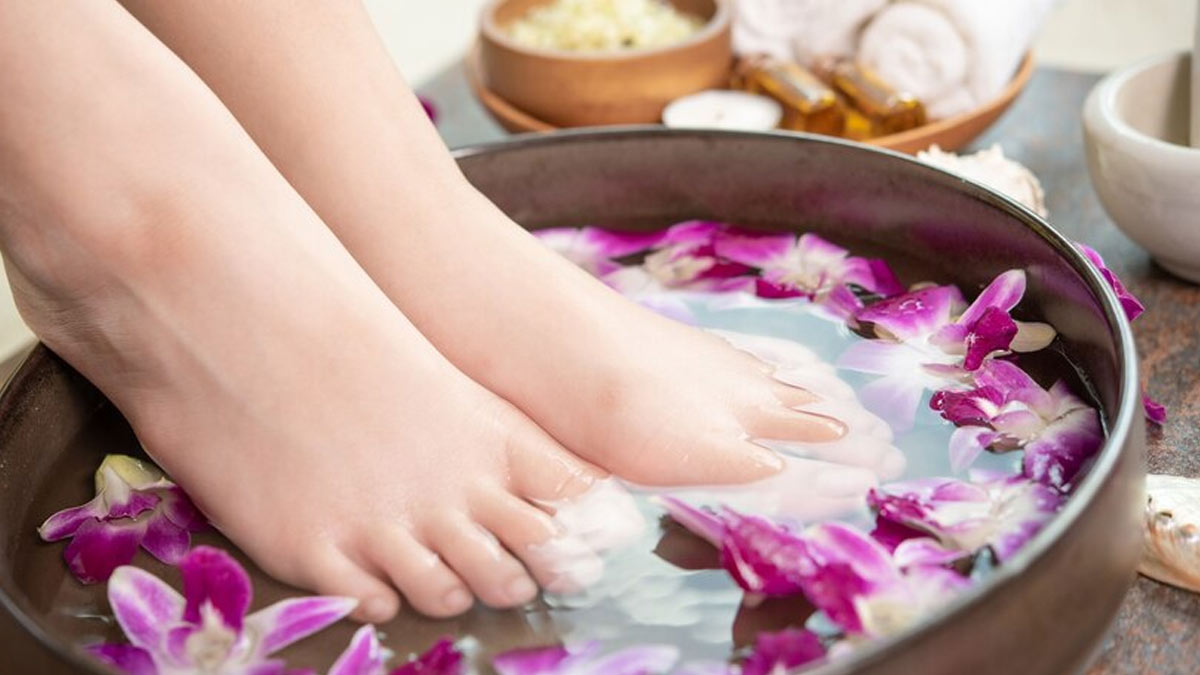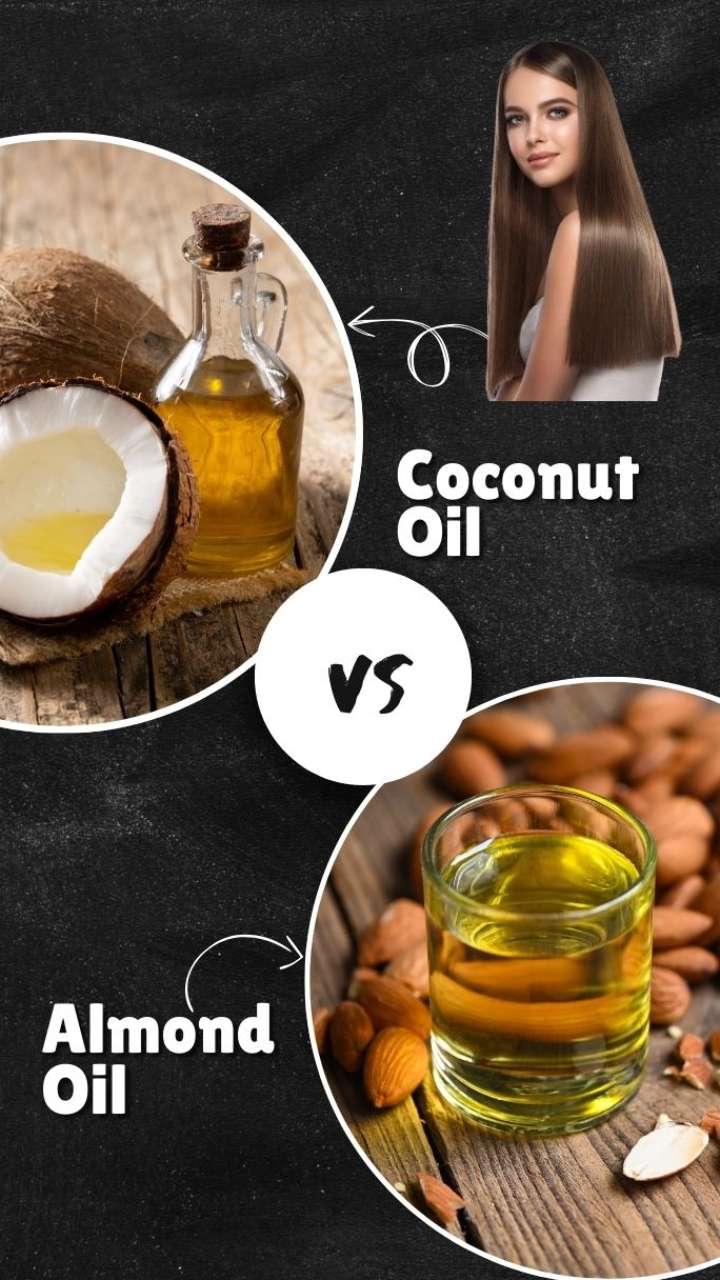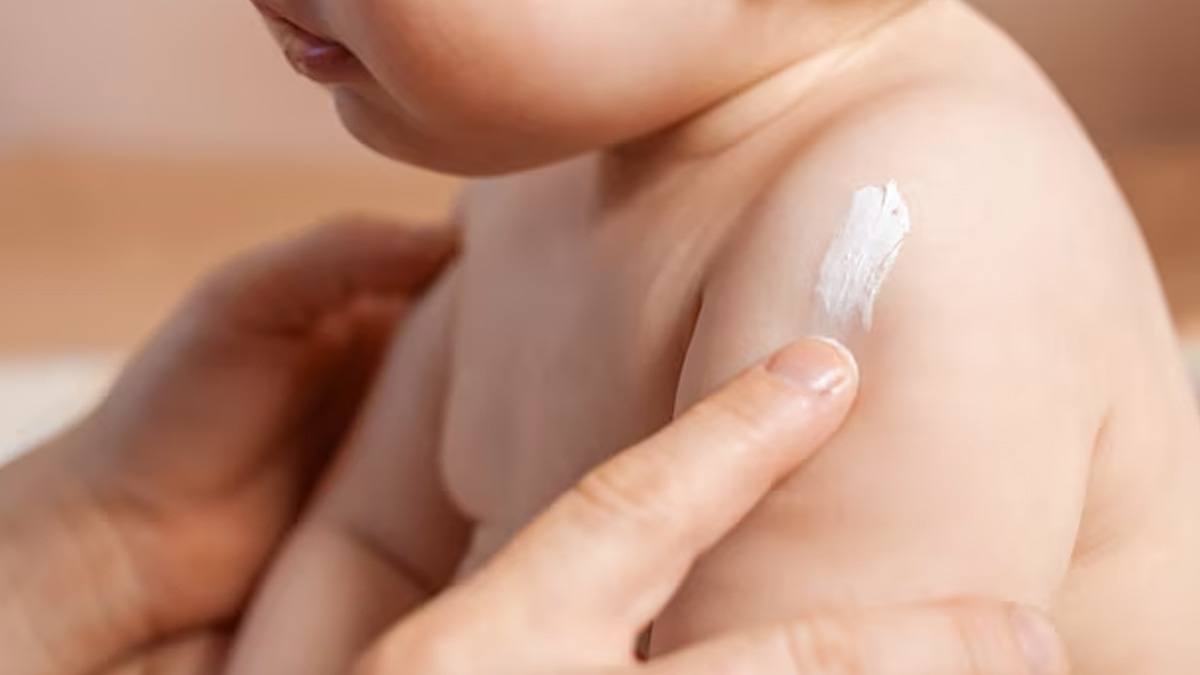
We all understand the importance of sunscreen in protecting us from ultraviolet (UV) radiation, and how it reduces our risk of sun damage and skin cancer. But what about babies and infants? Does the same rule apply to them? Is sunscreen the safest way to protect their delicate skin from sun exposure? The answer isn't that easy, and therefore, OnlyMyHealth interacted with to get some answers.
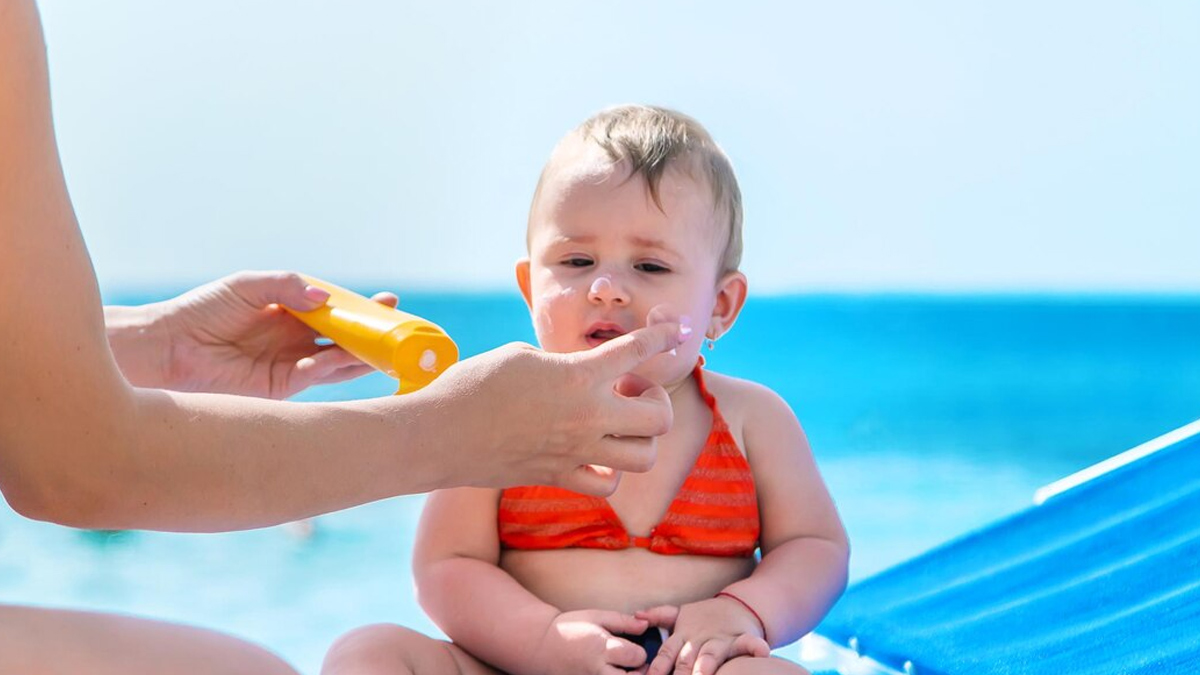
When we asked Dr Swarup whether or not applying sunscreens on newborns and infants is safe, he emphasised the importance of being careful about it.
“Infants' skin is very delicate and more vulnerable to sunburns, which can raise the chance of skin damage and chronic skin conditions in later life,” she said. However, because their skin is too sensitive for most sunscreens, babies younger than six months old should often be shielded from the sun by clothes and shade.
According to the US Food and Drug Administration (FDA) and the American Academy of Pediatrics (AAP), sunscreen isn't the answer to protecting the little ones from the sun's UV radiation. Instead, the health bodies recommend keeping newborns and babies younger than six months out of direct sunlight.
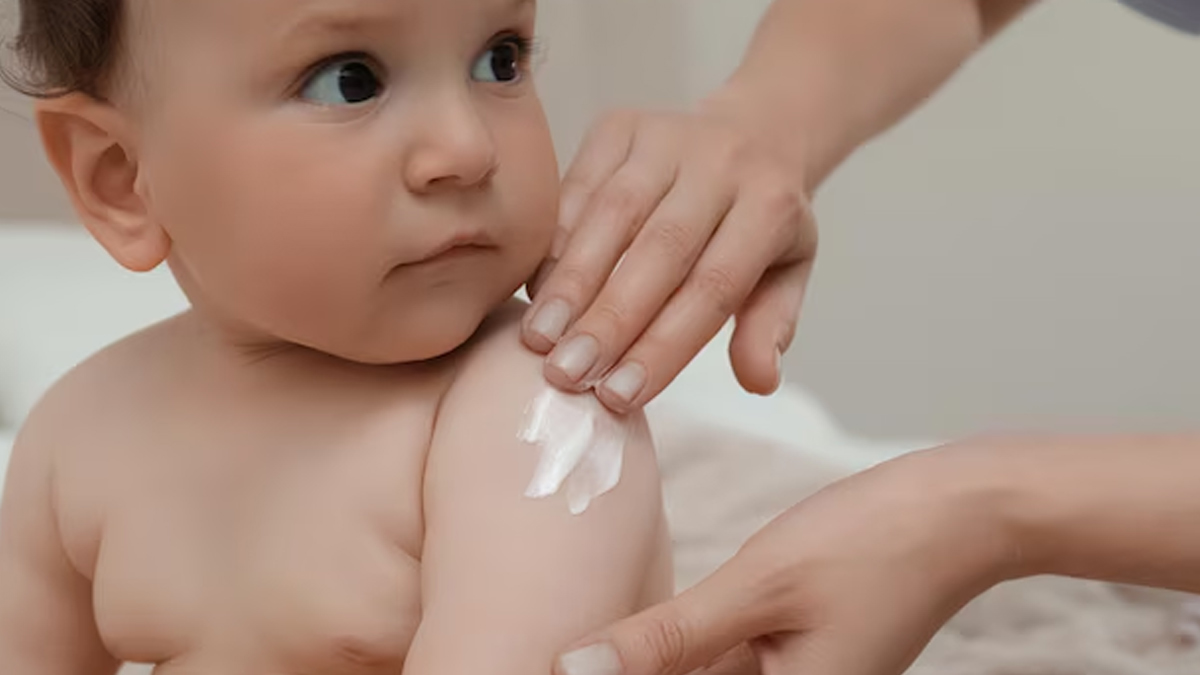
There are various ways (other than sunscreen application) that can shield a baby's skin from the sun. The safest course of action for infants less than six months is to completely avoid direct sun exposure, particularly between 10 am to 4 pm, when UV rays are at their peak, said Dr Swarup, adding that by putting them in the shade—for example, beneath a tree, umbrella, or stroller with a UV-blocking cover—you can keep them safe.
Additionally, a wide-brimmed hat, UV-protective infant clothes, and lightweight, long-sleeved apparel can all offer great coverage.
Babies can also be effectively protected from direct sunlight when they are outside by using a stroller with a parasol or UV-protective mesh cover. For infants aged six months and older, these precautions, along with safe sunscreen use, can provide complete sun protection without overexposing their delicate skin.
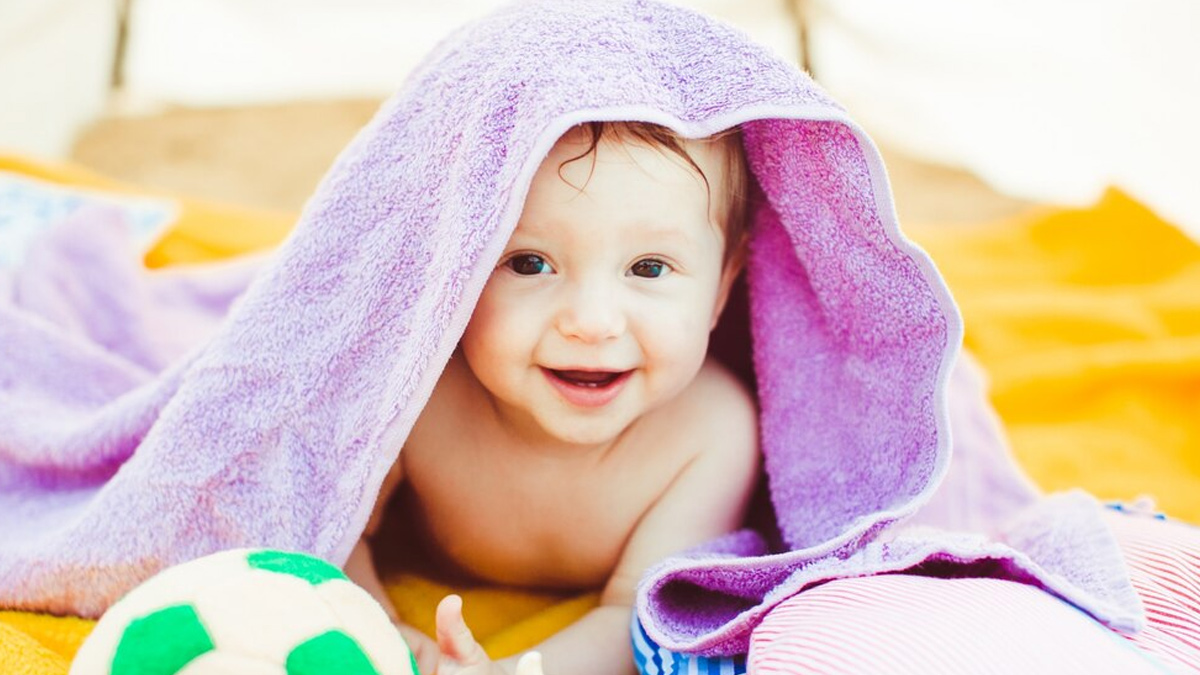
To help protect infants from damaging UV radiation, it is advised to use a broad-spectrum, mineral-based sunscreen with at least SPF 30 if the baby is older than six months, advised Dr Swarup.
Mineral-based sunscreens, particularly those that contain zinc oxide or titanium dioxide, are the safest for infants, he added, explaining that instead of being absorbed into the skin, these sunscreens physically block UV rays by lying on top of the skin, which reduces the likelihood of irritation.
Moreover, mineral sunscreens are less likely to include harsh chemicals, which is crucial for infants with delicate skin. Ensure that the sunscreens are hypoallergenic, fragrance-free, and labelled as safe for infants.
Also Read: Can Sunscreen Use Impact Vitamin D Production And Increase Vitamin D Deficiency Risk?
If you use sunscreen on your babies, ensure that they are at least six months of age. Additionally, stop sunscreen usage if you see any signs of irritation and allergies in infants. Certain products may contain chemicals or fragrances that may cause a skin reaction, causing the baby great distress.
Dr Swarup warned that babies are particularly susceptible to reactions like rashes, redness, or swelling because of their sensitive and delicate skin. To check for any negative reactions, it's a good idea to perform a patch test on a small area of the baby's skin before applying sunscreen to larger areas, she advised, emphasising consulting a paediatrician if irritation develops.
Sunscreen use is crucial to protect against sun damage. However, this does not apply to newborns and those younger than six months of age. For babies above six months, experts advise using mineral-based sunscreens that are hypoallergenic, fragrance-free, and free of harsh ingredients like parabens, oxybenzone, and avobenzone. Even so, it is important to consult a paediatrician if you believe your child’s skin is too delicate to handle sunscreen applications.








